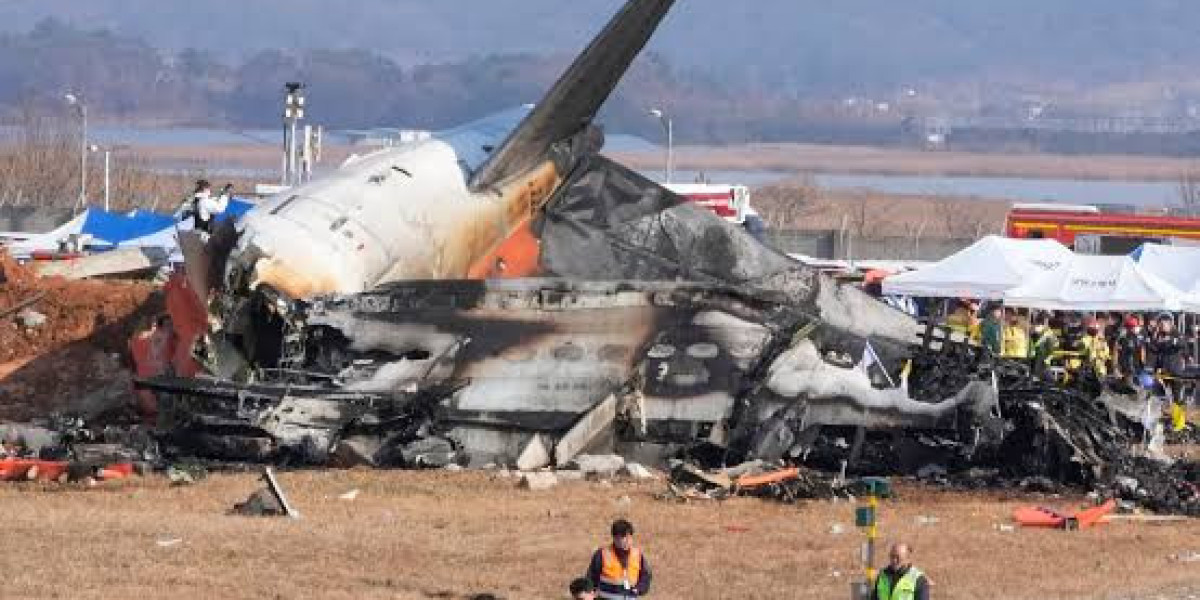A devastating crash involving a Jeju Air Boeing 737-800 on December 29, 2024, at Muan International Airport resulted in the deaths of 179 people, with only two crew members surviving. The incident has sent shockwaves across the nation and prompted a thorough investigation into aviation safety protocols.
The flight, originating from Bangkok, Thailand, was on its final approach to Muan when it encountered trouble. According to reports from South Korea's Aviation and Railway Accident Investigation Board (ARAIB), the pilots reported a suspected bird strike shortly before the crash. The aircraft subsequently attempted a belly landing, as the landing gear reportedly failed to deploy. The plane then tragically skidded off the runway and collided with a concrete structure, leading to a catastrophic fire.
Of the 181 individuals on board, which included 175 passengers and six crew members, only two flight attendants miraculously survived the inferno. The victims were predominantly South Korean nationals.
In the wake of the disaster, investigators have been meticulously examining the wreckage and the aircraft's flight recorders. The ARAIB has confirmed the presence of bird remains, identified as belonging to a species of wild duck, in both of the aircraft's engines. This finding lends significant weight to the initial bird strike theory as a contributing factor to the sequence of events that led to the crash.
However, the investigation has been complicated by the revelation that the aircraft's black boxes—the cockpit voice recorder and the flight data recorder—reportedly stopped recording in the final moments before the impact. This has left investigators with a critical information gap as they work to piece together the exact cause of the landing gear failure and the subsequent tragic outcome.
The South Korean government has responded swiftly to the incident. In a bid to prevent similar tragedies, authorities have ordered the mandatory installation of bird detection cameras and systems at airports across the country. The concrete structure that the plane collided with at Muan airport has also come under scrutiny, with experts questioning its construction and proximity to the runway.
As the nation mourns the loss of 179 lives, the focus remains on the ongoing investigation. The findings will be crucial in understanding the full chain of events that led to this horrific accident and in implementing necessary safety improvements to South Korea's aviation industry. Jeju Air, a major low-cost carrier in the country, has expressed its deep condolences and pledged full cooperation with the investigation.










